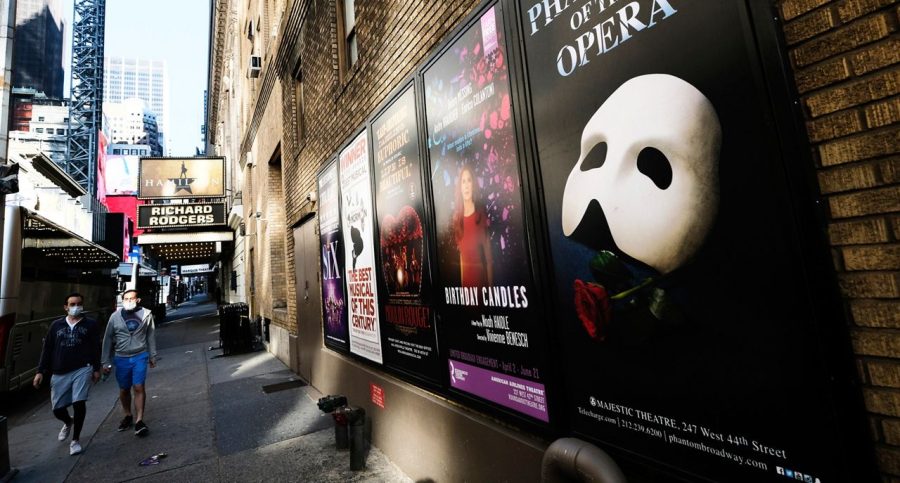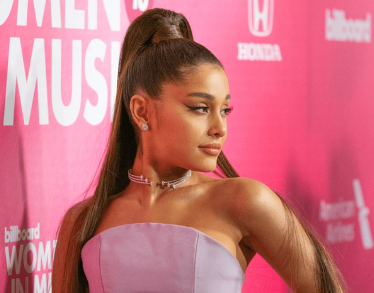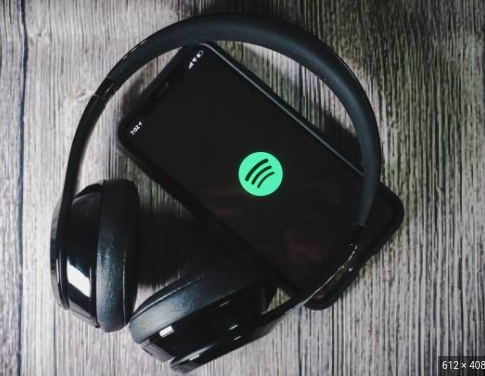Famous Broadway shows go dark as effects of pandemic linger
Many industries took a major hit during the COVID-19 pandemic, and Broadway was no exception. Multiple Broadway productions, such as Phantom of the Opera, announced their closing dates. The main culprit appears to be financial issues caused by COVID-19.
A recent article from Forbes explains the factors that may have contributed to Broadway shows like Phantom shutting down.
“Despite an average Broadway price of $113.29 per ticket, many shows struggled to break even.” the article states.
Additionally, the article states that theater ticket sales plummeted from 33 million a week in May to 20 million in September.
Shows are struggling to regain ground after Broadway was shut down for nearly 18 months during the height of the COVID-19 pandemic. Most shows only reopened in September of last year, and lingering worry about COVID-19 has translated into many theatergoers being reluctant to see live shows again. Ms. Suzy Perelman, a violinist who has played for Phantom on its national tour, said there has been a noticeable difference in crowd size.
“Just about every show is less crowded than before the pandemic,” she said.
She also discussed the impact of the closure of Phantom on the people who worked on the show.
“Many actors who work at Phantom have had their jobs for over a decade.” Perelman says. “They’ll have to start taking auditions. Surely some will bartend or wait tables until the next gig comes along.”
As a pit musician herself, Perelman is aware of the struggles that members of Phantom’s orchestra will face.
“Several of the pit musicians there have had the job for 35 years and are ready to retire! Others are not ready and will have to put themselves out there and reach out to other Broadway musicals to see if they can sub in other pits,” she stated.
Though the announcement of Phantom closing was shocking, multiple shows outside of Phantom have also announced their closing. Some shows closed earlier this fall, such as Dear Evan Hansen, which gave its final performance on Sept. 18. The show won six Tony awards throughout its run and has earned widespread acclaim. However, like other Broadway shows, it suffered from the loss of revenue caused by the pandemic. In an article from American Theatre, Stacey Mindich, the lead producer of Dear Evan Hansen, reflected on the musical’s run and what may have led to its closing.
“I’d like to blame it on COVID, I really would,” writes Mindich. “But perhaps our story was too emotional for these already difficult times. Perhaps the poorly reviewed film of the same name diminished our audience. Perhaps it was just our time.”
While the effects of the pandemic on the theater industry sound sobering and severe, the outlook is not completely bleak. Mindich also states in her article that she is optimistic about the future of Broadway.
“Hopefully we also leave a legacy for up-and-coming producers, writers, and directors to keep pushing the form, keep persevering even when others tell you ‘it will never work’, and to keep seeking stories from different points of view.” She stated.
This positive outlook is shared by Midnight Players Director Mr. Billy Lewis. When asked about possible positive impacts these closings will have on the Broadway community, Lewis did not hesitate to answer.
“Absolutely,” he stated. “It allows for more artistic freedom. Other shows will take over that space, they can renovate that space- it’s new blood coming into the life of theater.”
Lewis also stated that the best way to help the theater industry recover from the effects of the pandemic is to see a show and support the theater industry as much as possible.
He also mentioned a possible idea for enticing people to see Broadway shows again.
“If they did more outreach programs with cheaper tickets, I think that would be good,” he said. “People in New York know how great Broadway is and will go see it, but people outside New York might not know that.”

Isabelle is a senior in the Humanities magnet. This is her first year working with The Poolesville Pulse. Outside of school, she is an active member of...










